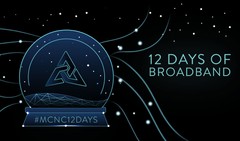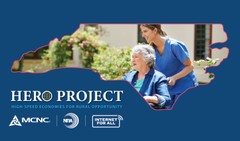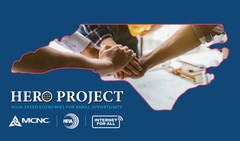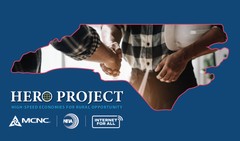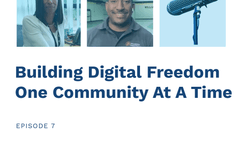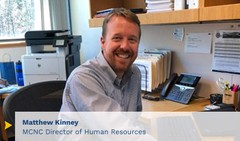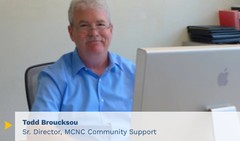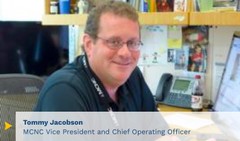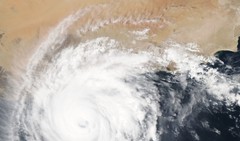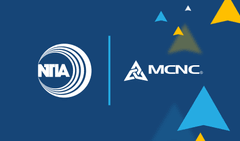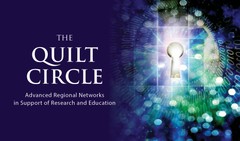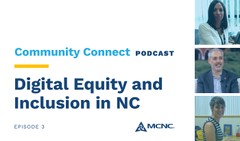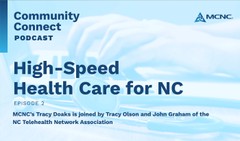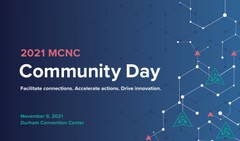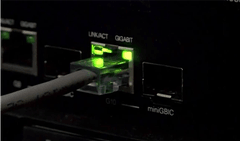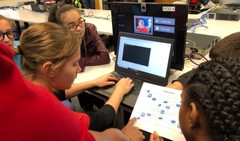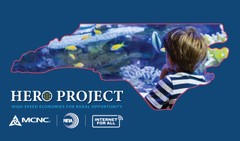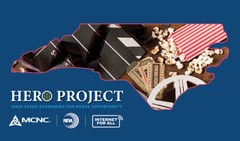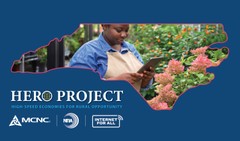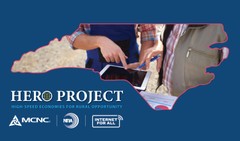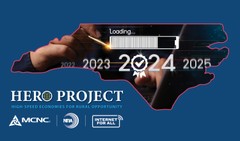HERO Project: Making rural NC safer through Broadband
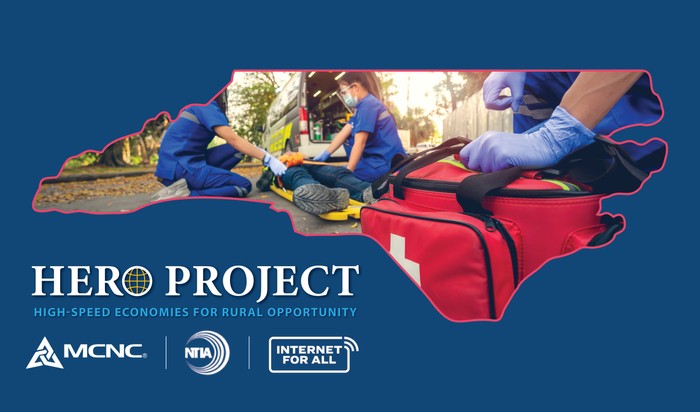
In emergencies, every second counts. Clear, quick, and reliable communications between first responders and those in need can truly make the difference between life and death. Unfortunately, many residents of rural regions of central and southeastern North Carolina don’t enjoy the power of a robust broadband infrastructure, and the public safety they enjoy—and the services first responders can provide—suffers as a result. MCNC's HERO (High-Speed Economies for Rural Opportunities) Project seeks to change this by bringing reliable broadband access, unlocking new opportunities for first response, and transforming the way emergencies are managed in these regions.
Narrowing Communication Gaps
In rural areas, inadequate broadband connectivity hampers the ability of first responders to communicate efficiently during emergencies. Slow or unreliable internet connections can impede the transmission of critical information, hinder coordination between different response units, and delay access to essential data. While their urban counterparts can make split-second decisions based on real-time data and communication, first responders in these more disparate communities face slower response times, risk of miscommunications, and an overall decrease in quality of public safety.
Building Relationships that Last
According to a study by the Connected Community Engagement Program, 20 percent of households interact with their local public safety organizations at least once a week. These services include typical agencies such as fire and police, but also agencies that protect citizens from cybersecurity threats and ither ongoing risks. So, public safety is not just about emergency services. Rather, it is a long-term relationship, a trust built between citizens and the organizations meant to protect and serve them every day—from emergencies to slowly emerging threats.
And, 40 percent of those agencies providing these vital services say that the current internet network does not meet today’s needs—to say nothing of their future needs.
Sharing Accurate Information Fast
Broadband access allows first responders to share information and updates instantly, enabling a coordinated response to unfolding situations. High-quality video and audio streaming can be vital for assessing situations remotely and providing immediate guidance to those on the ground. This means EMTs will be prepared for natural disasters and accidents, firefighters can communicate the need for reinforcements, and law enforcement can work with partners to track and catch criminals before they do further harm in the community.
This level of real-time data sharing can be a game-changer in improving situational awareness and decision-making.
Training and Preparedness
Police Legal Sciences has found that continuing education among officers reduces stress, improves morale, and builds a more engaged, confident force. Likewise, as medical techniques and protocols change, first responders must continue their training to ensure they are always providing the best possible care to those in need. But what happens when a small, rural agency sends half its force for a weeklong training? Service and safety suffer.
With the availability of high-speed internet, however, first responders will have ready access to a network of peers from across the country and around the world. Without leaving their offices, they can participate in virtual simulations, online training modules, and webinars that will allow them to study modern emergencies while still being on call to handle crises when they arise.
Connecting First Responders to Those in Need
With digital inequality pervading nearly every aspect of modern life, MCNC's HERO Project is a bold step toward closing the gap in everything from health, education, business, and now public safety. The HERO Project aims to construct over 200 miles of new middle mile fiber through rural NC communities as yet unserved or underserved by reliable, affordable high-speed broadband. Our neighbors, until now whose health and safety have been at risk simply due to their lack of connectivity, will see an immediate improvement in their personal safety and the overall health and safety of their communities. This initiative equips first responders with the tools they need to excel in their critical roles. From seamless communication between emergency services to real-time access to maps, data, and resources, broadband infrastructure will prove to be the most powerful tool to ensuring public safety in all North Carolina communities.
Bring it Home
MCNC's HERO Project is not merely about bringing fast internet to rural central and southeastern North Carolina. It's about creating a future where our frontline heroes are better equipped to save lives, protect communities, and ensure public safety. As broadband connectivity expands, they will have the tools to collaborate, communicate, and respond quickly when emergencies arise. Law enforcement and emergency services rest at the heart of so many of our rural communities, serving for generations as the first call or visit when citizens are in need. Now, through the HERO Project, we can ensure that those who give so much to ensure the safety of those in their community have all the tools they need to protect, serve, and care for their communities for generations to come.
